News Briefs
Trauma-Informed Practice with Oprah
In July, Charlotte Jacobs, GR’17, director of the Penn GSE Independent School Teaching Residency program and co-director of HEARD: the Hub for Equity, Anti-Oppression Research, and Development, traveled to Johannesburg, South Africa, for the Oprah Winfrey Leadership Academy for Girls (OWLAG) conference. The meeting, “What Happened to You: Understanding the Impact of Trauma on Learning, Teaching and Psychological Functioning,” centered on trauma-informed practice (TIP), which examines how adversity, background, and lived experiences shape a student’s development and learning.
“Education doesn’t make a whole person,” said Jacobs, who serves on OWLAG’s board of directors. “It is not just the academics that are important for growth and development. You must also understand where the students come from mentally, emotionally, and spiritually.”
After 10 years of integrating TIP into its own program, OWLAG is creating a framework to empower educators and practitioners to utilize the practice. “[The group is] at a point now where they want to share their learnings and practices with folks outside the school,” said Jacobs. “As more people become informed and learn, the hope is it will spread.”
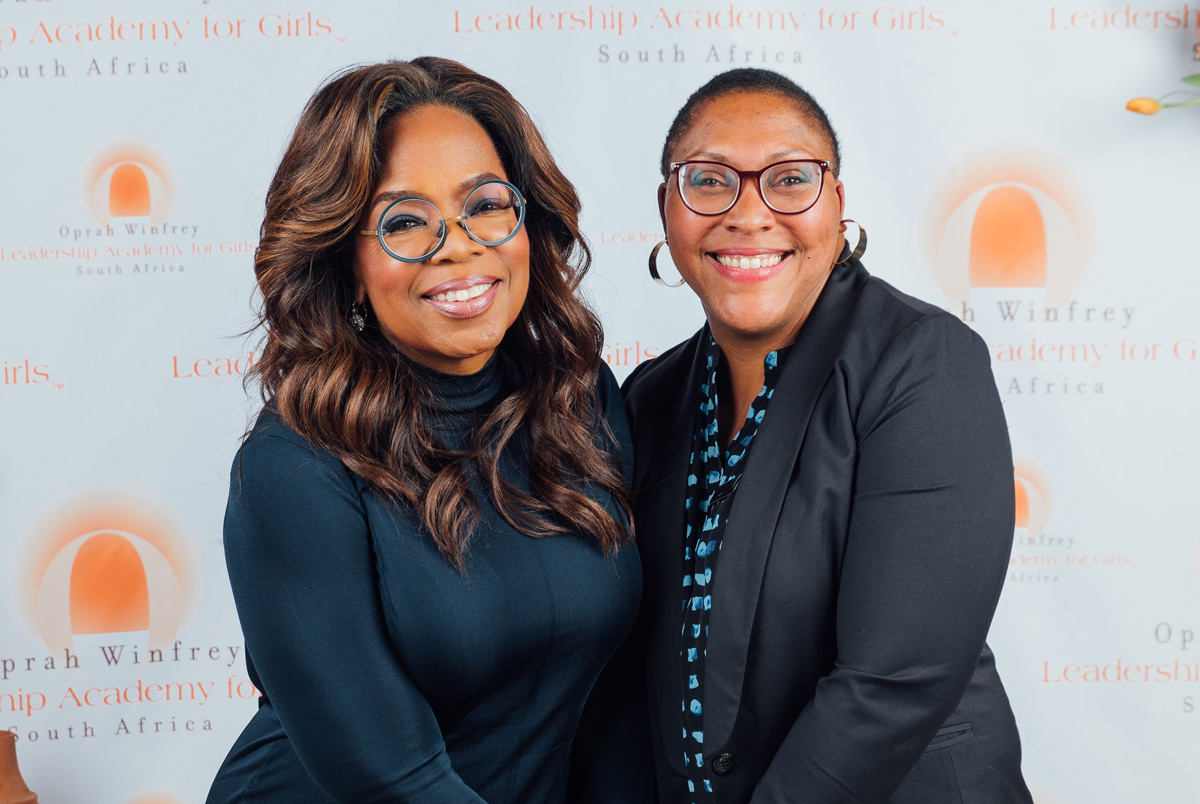
Charlotte Jacobs (right) with Oprah Winfrey in South Africa. Photo courtesy of Charlotte Jacobs.
Rachel Baker (2) was named associate editor of the Journal of Research on Educational Effectiveness. She also received a grant from Ascendium Education Group for her project, “How Community College Students Choose Programs of Study,” in partnership with researchers at the Community College Research Center at the Teachers College of Columbia University.
Sigal Ben-Porath (3) was awarded the inaugural MRMJJ Presidential Professorship. She was also named faculty director of Penn’s Stavros Niarchos Foundation Paideia Program, which is designed to provide all Penn undergraduates with the knowledge, skills, and ethical frameworks necessary to be informed, engaged, and effective community members, and to lead integrated personal, professional, and civic lives.
Peter Eckel’s (4) book, Governing Universities in Post-Soviet Countries: From a Common Start, 1991–2021, was published by Cambridge University Press.
Roberto Gonzales (5) was elected to the Sociological Research Association, a highly selective, 400-person society of sociological fellows founded in 1936 that annually elects only 14 new members based on research excellence.
Tawanna Jones (6) presented at the Pennsylvania Higher Education Summit. Her session, “Radical Reading: Context Matters in Structured Literacy,” focused on the need to integrate cultural competence into literacy instruction. Additionally, the community organization she founded, REIGN Inc., was highlighted in a report from the Education Law Center on Black girls’ experiences in Philadelphia public schools.
Rand Quinn (7) was appointed faculty director of Civic House, Penn’s hub for civic engagement, and the Civic Scholars Program.
Sharon Ravitch (8) published “New Tools for a New House: Transformations for Justice and Peace in and Beyond COVID-19” in Perspectives on Urban Education.
Ariane Thomas (9) and two Penn undergrads received a Projects for Progress award for their Positioned for Success initiative, which provides academic support to Philadelphia middle schoolers who are in the child welfare system and have been affected by gun violence and/or parental incarceration. Its enrichment and mentoring services aim to increase their educational attainment.
Susan Yoon (10) was awarded the inaugural Graduate School of Education Presidential Professorship.
Jonathan Zimmerman (11) was named a columnist at The Philadelphia Inquirer, where he is now writing two columns a month. He also contributed an essay, “Higher Ed’s Founding Promise” to Washington Monthly’s annual issue devoted to college rankings.

Connecting Communities through Crafts
Education is at the heart of everything Fabiola Lara, GED’14, does. It’s in her family, too. She and her husband, Sabith Khan, are both educators. So were and are both of their mothers. So, when she and Khan decided to launch their business, they knew that education had to be a key component of their brand.
In September 2021, the couple launched tlali•pani, an online storefront and lifestyle brand that partners with women-led artisan families and female entrepreneurs globally to support ethically sourced, produced, and consumed products. Currently, their offerings are exclusively from Oaxaca, Mexico, and include premium-quality homewares (coverlets, rugs, table linens, robes) and single-origin, artisanal cacao and chocolate. An integral part of their mission is to give back to the communities behind the products.

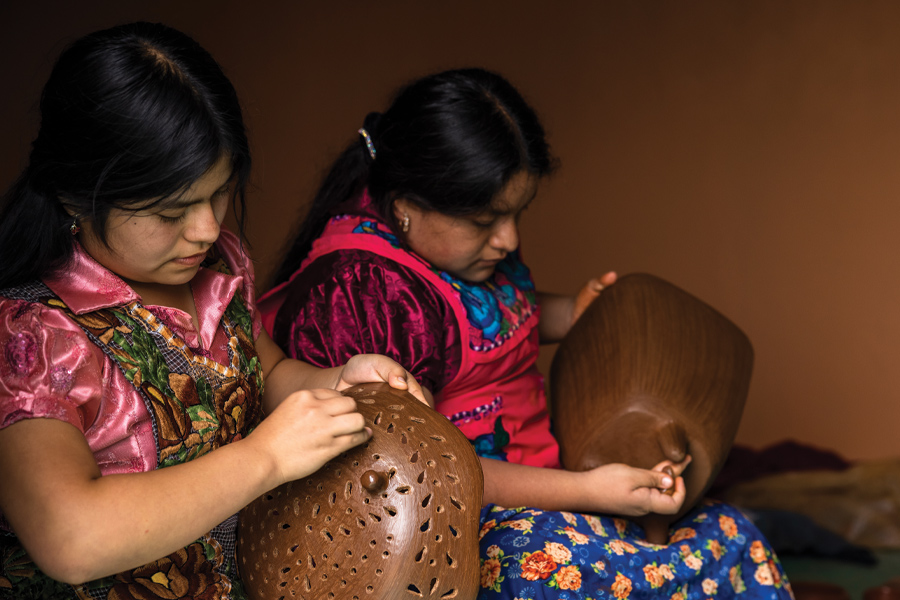
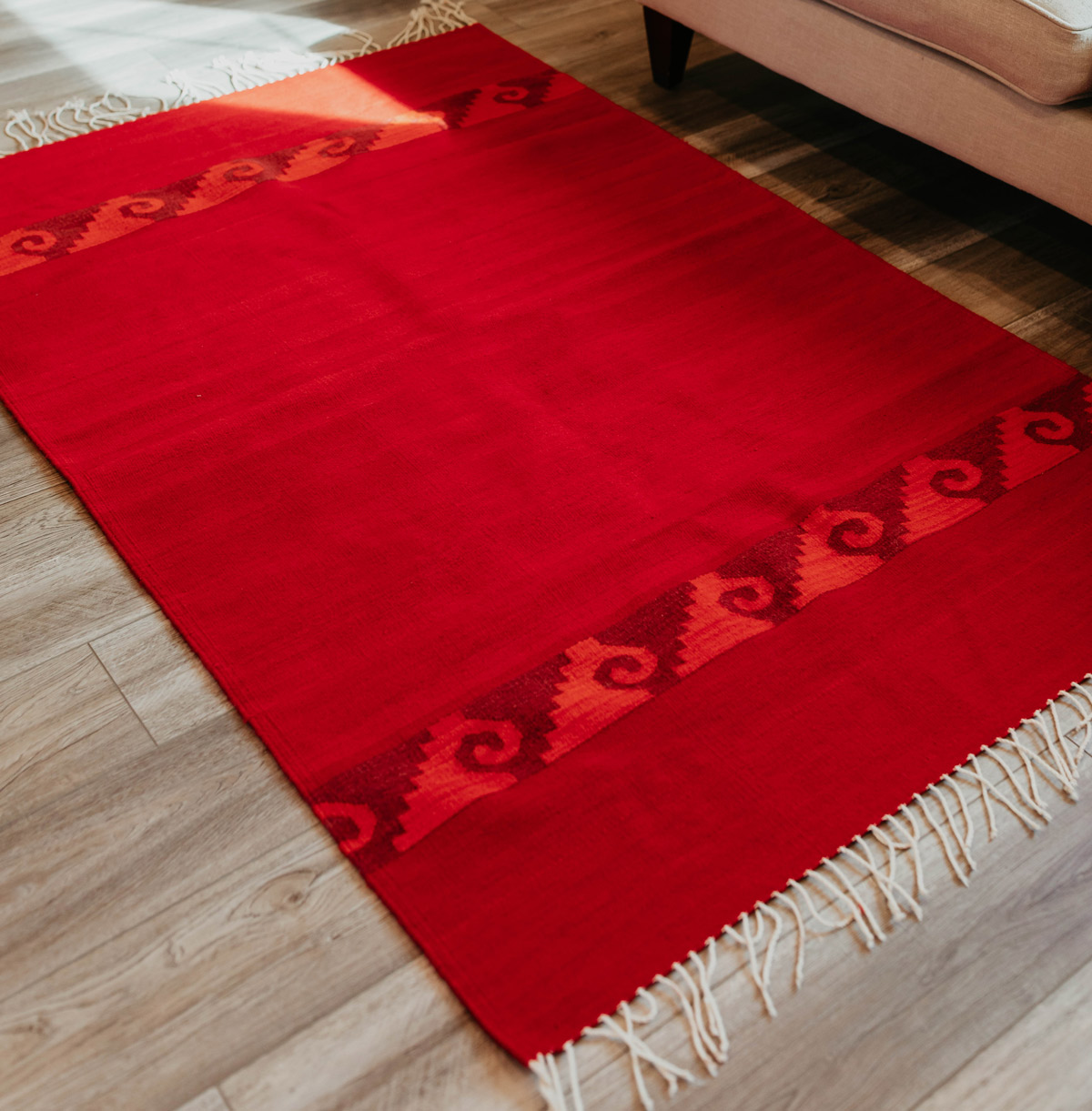
“From the very start, we’ve always said that we’re a lifestyle brand, and the education component is a part of that lifestyle,” said Lara. “We want people to learn about where these products come from, who the communities are that are making them, and build social awareness on critical issues.”
And the education goes both ways. Not only is tlali•pani educating consumers about ethical and sustainable consumption, but they are also offering learning opportunities to their partners.
“A key issue impacting one of our partner communities is gender-based violence—the women of the community highlighted this in an interview that we held with them,” said Lara. “We were then able to respond quickly and identify a local gender expert from Oaxaca who specialized in gender-based violence. She was able to deliver an awareness training on what incidents of gender-based violence can look like and what you can do if someone you know in the community is affected.
“So for us, it’s about offering products of the highest quality to our customers, and also making sure that we’re addressing issues that are important to our partner communities by providing enriching opportunities for them.” Explore more: tlalipani.com
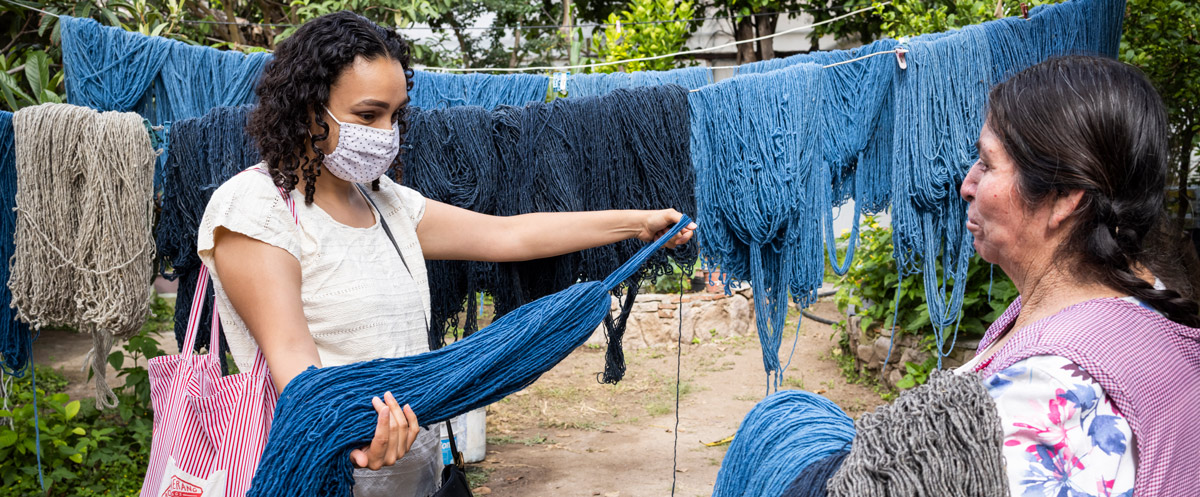

EJ Milken (left) and Unlocked Labs Founder Jessica Hicklin embrace on stage after learning that Unlocked Labs won the grand prize.
Winners Announced for the 2023 Milken-Penn GSE Education Business Plan Competition
The winners of the 14th annual Milken-Penn GSE Education Business Plan Competition (EBPC) were announced at an event at EDTECH WEEK 2023 in New York City on October 4, after the seven finalists pitched their ventures to a live judging panel and an audience of investors, researchers, and practitioners.
Unlocked Labs, a venture that empowers and employs individuals impacted by the justice system to design and build technology that enables decarceration, captured the $40,000 grand prize and the Osage Venture Partners Audience Choice Prize. Skizaa, a venture that helps education leaders make real-time, data-driven decisions by collecting and analyzing data from rural schools in Sub-Saharan Africa, won the $25,000 Cognativ Inc. Prize.
Other winners included Storyshares, a digital learning solution for young readers, which received the Magnitude Digital Prize, and EdVisorly, a nationwide community college-to-university transfer platform, which was given an additional investment from Conscious Venture Partners.
Considered the most prestigious and well-funded competition of its kind, the EBPC attracts innovative education ventures from around the world. To date, the EBPC has awarded over $2 million dollars in cash and prizes. Winners and finalists have gone on to earn more than $200 million in funding.
Professor Howard Stevenson Remembers Constance Clayton, 1933–2023
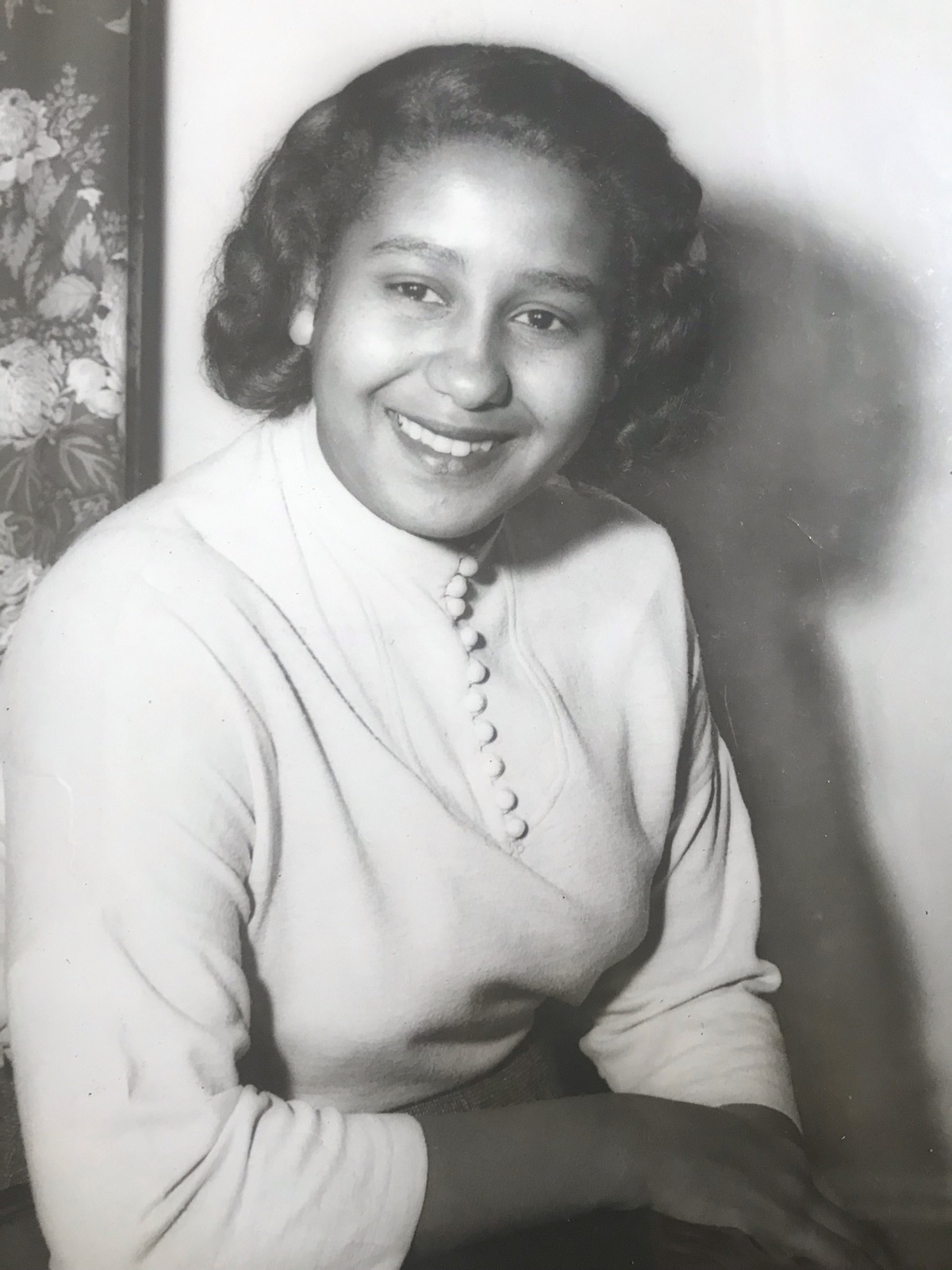
Constance Elaine Clayton, GRD’81, passed away on the morning of September 18. Clayton, who began her career in Philadelphia as a teacher, became the first woman and the first African American to serve as superintendent of the School District of Philadelphia from 1983 until her retirement in 1993. Her legacy of fighting to ensure that all children deserve the best education possible was not only known in Philadelphia, but across the nation.
Clayton was known for tackling the district’s difficult budget without cutting student services, attracting local businesses to help equip schools with better resources, and establishing schools as the center of their communities. Clayton was known as “No Close Clayton” because she rarely closed schools, believing children should have as much learning time as possible.
Despite the turmoil of teacher walkouts for a decade prior to her becoming superintendent, no walkouts happened on her watch. Clayton was the last superintendent to have led with a balanced budget. She was a master negotiator and gained the respect of the Philadelphia teachers’ union and politicians alike.
As a testament to her work, the University of Pennsylvania established the Constance E. Clayton Professorship in Urban Education in 1994. This made her the first African American woman in the country to have a named professorship. Diana Slaughter Kotzin was the first Constance E. Clayton Professor and currently, since 2014, that distinguished honor is mine. A lectureship at Penn GSE was also created in her honor in the late 1990s and still takes place annually on the fourth Thursday in October at Penn.
As much as Clayton was a national activist and a Philadelphia legend, her courageous legacy left an imprint on the University of Pennsylvania, the Graduate School of Education, and the Racial Empowerment Collaborative faculty, clients, and students.

– Howard Stevenson
Constance Clayton Professor of Urban Education
Professor of Africana Studies
Director, Racial Empowerment Collaborative